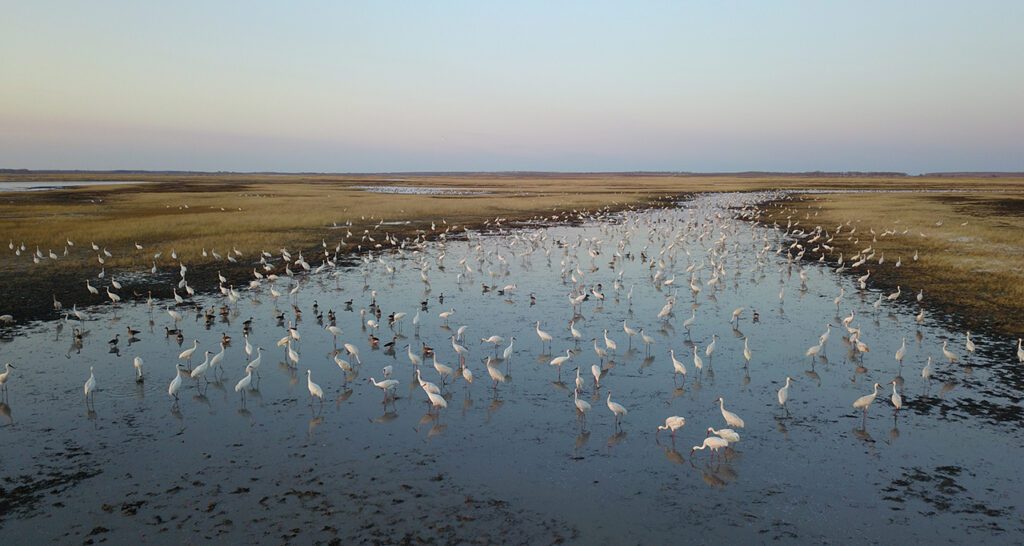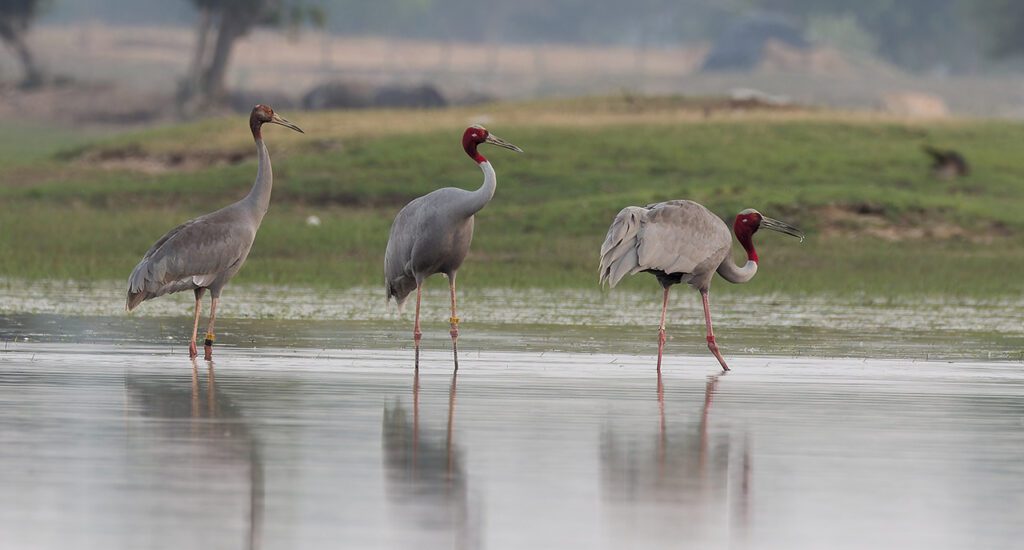International Conservation Experts Gather in Wisconsin for Black-necked Crane Workshop
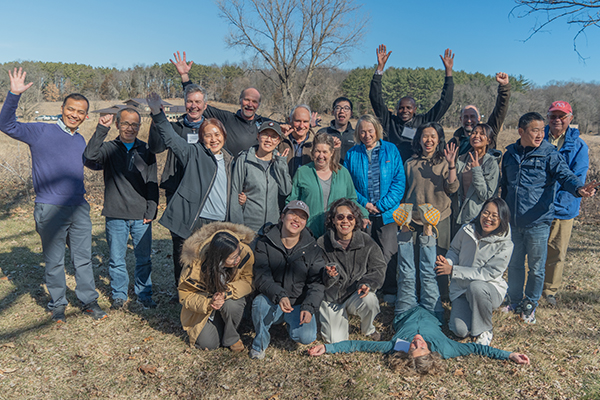
The International Crane Foundation has brought conservation experts from China, Germany and across the U.S. to our Baraboo, Wisconsin, headquarters this week to discuss a three-year project to save the Near Threatened Black-necked Crane and its wetland habitats in Asia. Additionally, experts from Bhutan and India are joining the workshop virtually.
The Black-necked Crane, with some 16,500 birds worldwide, is under pressure due to disappearing habitat and a range of other threats. These cranes rely on wetland areas – breeding in the high-altitude regions of the Himalayas and the Tibetan Plateau and wintering at small wetlands in Bhutan and China. They follow a number of migration routes connecting their breeding, stopover and wintering sites, many of which are poorly known. While climate change-induced melting of glaciers has recently helped the cranes by providing increased water flows on the Tibetan Plateau, the outlook for these wetland areas is not good in the long term as the glaciers disappear.
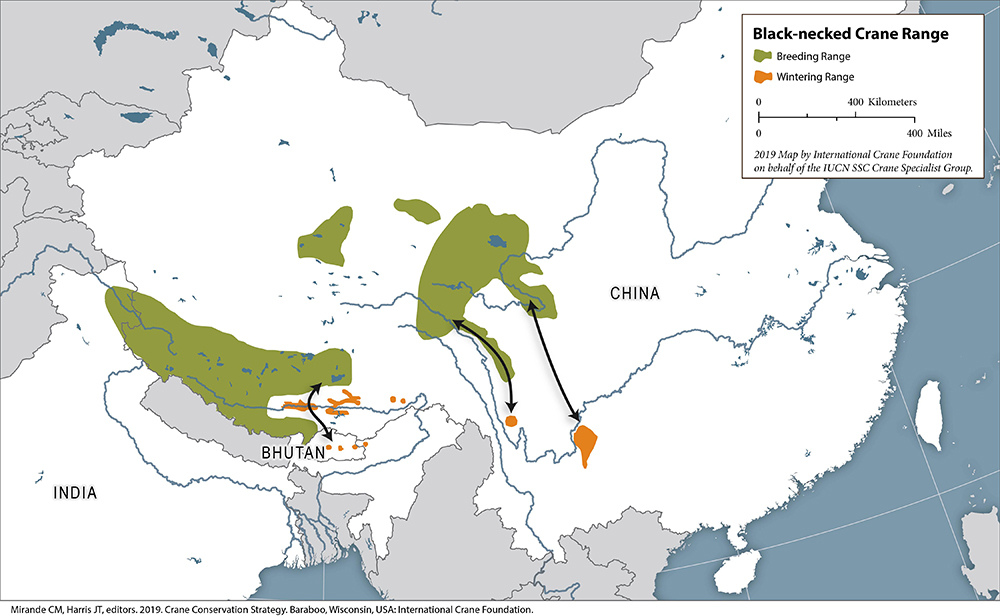
Rapid development, disturbance from tourism and feral dogs, and collisions with powerlines linked to energy projects across the species range also pose increasing threats.
Workshop participants are developing a three-year project that will involve conservation work in China, Bhutan, India and Nepal. The project is the brainchild of Co-Founder Dr. George Archibald, who is working with staff and our counterparts in Asia on project development. The project partnership builds on our long-term support for Black-necked Crane conservation in this region. It will further support the implementation of an international strategic plan for the species that was updated at an international meeting held in Bhutan in November 2022.
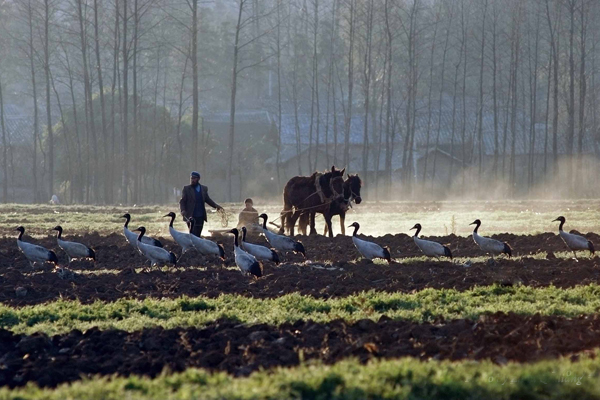
The goals of the project include:
- Defining the key threats to the Black-necked Crane and identifying the key sites for the species.
- Reduction of disturbance to breeding Black-necked Cranes in the high-altitude regions of Ladakh caused by increased road access and tourism.
- Tracking breeding Black-necked Cranes in Ladakh, India, to find out their transboundary migration routes into China and to identify the stopover and wintering areas used by these birds.
- Strengthening land use planning for the important wintering site at Phobjikha, Bhutan in order to reduce impacts of land use change on crane habitats.
- Restoring and fencing rice paddy fields in Bomdeling, Bhutan, to reduce human-wildlife conflict and provide a secure wintering site for the cranes.
- Strengthening the Black-necked Crane network across China with improved communications, conservation actions at sites, and additional education and awareness activities.
The workshop is being facilitated by Dr. Erica Cochrane, Conservation Measures Manager. Participants include:
- Mr. Jigme Tshering – from the Royal Society for Nature Conservation in Bhutan
- Dr. Wu Heqi – from the Kunming Institute of Zoology in Yunnan, China
- Dr. Pankaj Chandan – from the Institute for Development in Jammu and Kashmir, India
- Dr. Mary Bishop – from Prince William Sound Science Center, Cordova, Alaska
- Dr. Gunter Nowald – German Crane Conservation
- International Crane Foundation staff from the U.S., China and the U.K.
